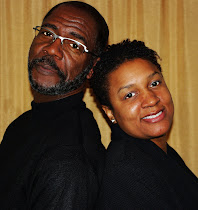Can we talk about the airplane just one more time? Even though the pilots have done a preflight check and all they can do to insure a flawless takeoff, there most certainly will always be obstacles to face after the plane has taken off. Flying is no different than other things that occur in our lives. Just when you think everything is going as planned, it doesn’t. There is carefully planned maintenance, test by engineers, pilots that have been rigorously trained in the mechanics of the plane and of course pre-flight checks. It just seems that when you think you are prepared for something that’s when you find out, you aren’t.
Listen, no amount of training that a pilot has taken; no amount of mechanical engineering and no amount of preflight preparation can prepare a pilot or co-pilot for ice that forms on the wings during flight. It is during this most critical time a pilot will take a critical test. The right decisions must be precisely made, control is critical, timing is of the utmost importance and no errors can be made. A pilot error at this point will make the difference whether an entire flight perishes or survives.
As was pointed out in Part 1, in a marriage a husband is the pilot. This pilot is responsible for the total success of the marriage. That is to say whether it succeeds to its destination or if it crashes and burns. In this situation, it really doesn’t matter what the condition of the copilot (wife) is, the pilot is in complete control. You should be aware that if this flight crashes, the manager of the airlines is not going to hold the co-pilot responsible, but the pilot. God expects husbands to rely on the training they have and the training that is available to them to ensure this flight arrives safely (with the co-pilot). Just in case some of the pilots out there aren’t too sure about their flight plan, here’s a note from section Isaiah 41:10 that says, "Don’t be afraid, for I am with you. Do not be dismayed, for I am your God. I will strengthen you. I will help you. I will uphold you with my victorious right hand."
Take control of that flight! Sometimes the co-pilot will think they know best, especially in the face of adversity, but the pilot is the first person the air traffic controller is going to talk to and hold accountable. In the flight manual (the bible), there are several sections you may need to read over to ensure you’ve got the right stuff for in-flight crisis. Here are a few for reference:
- "God is our refuge and strength, always ready to help in times of trouble." Psalm 46:1
- "The Lord is my strength, my shield from every danger. I trust in him with all my heart. In crisis we may wonder, whom can I trust? We can always trust the Lord." Psalm 28:7
- "From the depths of despair, O Lord, I call for your help. When we reach the, we reach the end of our rope, we must call upon the Lord, for our weaknesses are times for his strength; our crisis are his opportunities." Psalm 130:1
- "When I had lost all hope, I turned my thoughts once more to the Lord." Jonah 2:7
Remember, communication is the key to you and your spouse steering the plane to the airport, but God, who is the air traffic controller and holds the pilot accountable, paves the way for you to have a safe landing.




2 Click to comment:
Some definite food for thought. Yes, communication is so important.
Thanks for being my inspiration!
Post a Comment